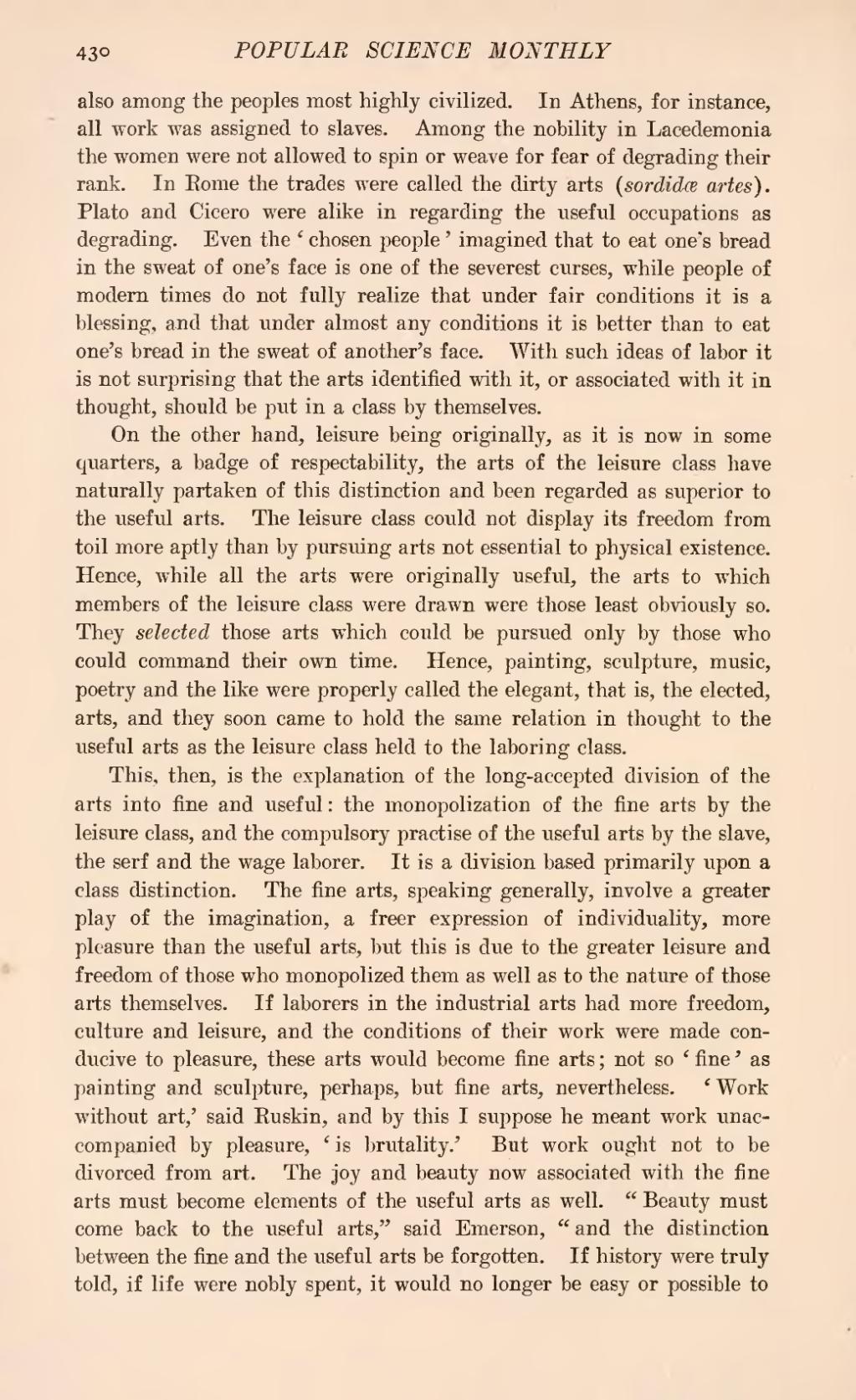also among the peoples most highly civilized. In Athens, for instance, all work was assigned to slaves. Among the nobility in Lacedemonia the women were not allowed to spin or weave for fear of degrading their rank. In Rome the trades were called the dirty arts (sordidæ artes). Plato and Cicero were alike in regarding the useful occupations as degrading. Even the 'chosen people' imagined that to eat one's bread in the sweat of one's face is one of the severest curses, while people of modern times do not fully realize that under fair conditions it is a blessing, and that under almost any conditions it is better than to eat one's bread in the sweat of another's face. With such ideas of labor it is not surprising that the arts identified with it, or associated with it in thought, should be put in a class by themselves.
On the other hand, leisure being originally, as it is now in some quarters, a badge of respectability, the arts of the leisure class have naturally partaken of this distinction and been regarded as superior to the useful arts. The leisure class could not display its freedom from toil more aptly than by pursuing arts not essential to physical existence. Hence, while all the arts were originally useful, the arts to which members of the leisure class were drawn were those least obviously so. They selected those arts which could be pursued only by those who could command their own time. Hence, painting, sculpture, music, poetry and the like were properly called the elegant, that is, the elected, arts, and they soon came to hold the same relation in thought to the useful arts as the leisure class held to the laboring class.
This, then, is the explanation of the long-accepted division of the arts into fine and useful: the monopolization of the fine arts by the leisure class, and the compulsory practise of the useful arts by the slave, the serf and the wage laborer. It is a division based primarily upon a class distinction. The fine arts, speaking generally, involve a greater play of the imagination, a freer expression of individuality, more pleasure than the useful arts, but this is due to the greater leisure and freedom of those who monopolized them as well as to the nature of those arts themselves. If laborers in the industrial arts had more freedom, culture and leisure, and the conditions of their work were made conducive to pleasure, these arts would become fine arts; not so 'fine' as painting and sculpture, perhaps, but fine arts, nevertheless. 'Work without art,' said Ruskin, and by this I suppose he meant work unaccompanied by pleasure, 'is brutality.' But work ought not to be divorced from art. The joy and beauty now associated with the fine arts must become elements of the useful arts as well. "Beauty must come back to the useful arts," said Emerson, "and the distinction between the fine and the useful arts be forgotten. If history were truly told, if life were nobly spent, it would no longer be easy or possible to
